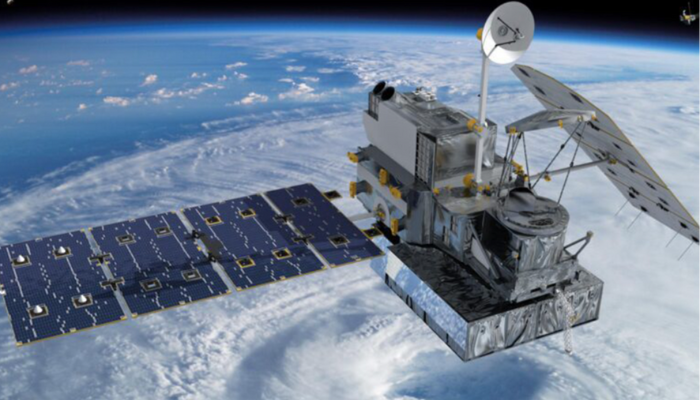The recent strategic moves by the newly appointed management of the Nigerian Communications Satellite company, under the leadership of Jane Nkechi Egerton-Idehen, signal a renewed effort to maximize the potential of the country’s satellite infrastructure. Despite these endeavors, the clock is ticking, with only three years left for the NigComSat-1R satellite to complete its 15-year lifespan.
Launched in 2011, the NigComSat-1R satellite was envisioned as a cost-saving solution for Nigerian telecom operators and broadcast stations, aiming to reduce the need for sourcing satellite services abroad. Additionally, it was anticipated to enhance the country’s broadband penetration and contribute to economic growth. However, over the past 12 years, the satellite has fallen short of these expectations, with businesses and government agencies like the National Broadcasting Commission opting for alternatives.
Jane Nkechi Egerton-Idehen, the newly appointed CEO, is on a mission to revitalize the satellite company. During her initial tour of the company’s facilities in Lagos, she emphasized a vision to transform NIGCOMSAT, positioning it to provide reliable internet services that drive innovation and technological advancements. She expressed determination to align with the government’s goals for a digital economy, pledging to help build the necessary infrastructure to accelerate the country’s technological growth.

Egerton-Idehen outlined her strategy, intending to reposition the satellite company to facilitate broadband penetration in underserved areas. She envisions a future where technology, particularly information and communication technology (ICT), plays a pivotal role in various aspects of Nigerian life, from agriculture to transparent governance. This ambitious vision aims to increase ICT’s contribution to Nigeria’s GDP, following the examples set by countries like the UAE and Saudi Arabia in diversifying their economies.
Taking tangible steps toward this vision, NIGCOMSAT recently unveiled its Educational Technology (EdTech) solutions during a strategic meeting in Abuja. Leveraging satellite broadband connectivity, the company aims to revolutionize education in Nigeria by providing schools with affordable, reliable internet access and integrating EdTech resources aligned with the national curriculum.
The Executive Director of Marketing and Business Development of NIGCOMSAT, Mr. Najeem Salaam, highlighted the company’s upgraded broadband and broadcasting capacity platform, positioning it to offer better access to opportunities for Nigerians. He emphasized that NIGCOMSAT is open for business and encouraged collaboration to achieve the collective dream of a technologically advanced Nigeria.
Despite these positive developments, the impending expiration of NigComSat-1R in the next three years poses a significant challenge. Former Minister of Communications, Barrister Adebayo Shittu, had advocated for the launch of two new satellites as backups, but this proposal faced resistance from stakeholders who questioned the profitability and utilization of the current satellite.
In 2021, former NIGCOMSAT Director, Dr. Abimbola Alale, announced plans to acquire two more satellites by 2025, with NigComSat-2 scheduled for launch in 2023 and NigComSat-3 in 2025. However, the success of these plans remains uncertain, and the 2022 budget provision of N2.5 billion for NIGCOMSAT’s second satellite was not implemented.
The reluctance of Nigerian businesses, especially telecommunications companies, to patronize NIGCOMSAT has been a major impediment. High pricing compared to foreign satellite services has led these companies to seek more affordable alternatives abroad. Industry experts, including Mr. Olusola Teniola, former President of the Association of Telecommunications Companies of Nigeria, emphasize the need for NIGCOMSAT to review its pricing and offer unique services to attract local operators.
The journey of NigComSat-1R, from its contract signing in 2009 to its successful launch in 2011, reflects the initial optimism surrounding its potential contributions to communications, internet services, health, agriculture, environmental protection, and national security. However, the underutilization over the years raises questions about the satellite’s effectiveness and the need for a comprehensive strategy to ensure the success of future satellite endeavors.
As NIGCOMSAT navigates the challenges and opportunities on its path, the next few years will be crucial in determining the fate of Nigeria’s satellite communications infrastructure. The success of the revitalization efforts led by Jane Nkechi Egerton-Idehen and the ability to address pricing concerns will play a pivotal role in shaping the future of satellite services in the country. Time is of the essence as the countdown to the expiration of NigComSat-1R serves as a reminder of the urgency to secure the nation’s satellite communication capabilities for sustained technological growth.
Support InfoStride News' Credible Journalism: Only credible journalism can guarantee a fair, accountable and transparent society, including democracy and government. It involves a lot of efforts and money. We need your support. Click here to Donate
